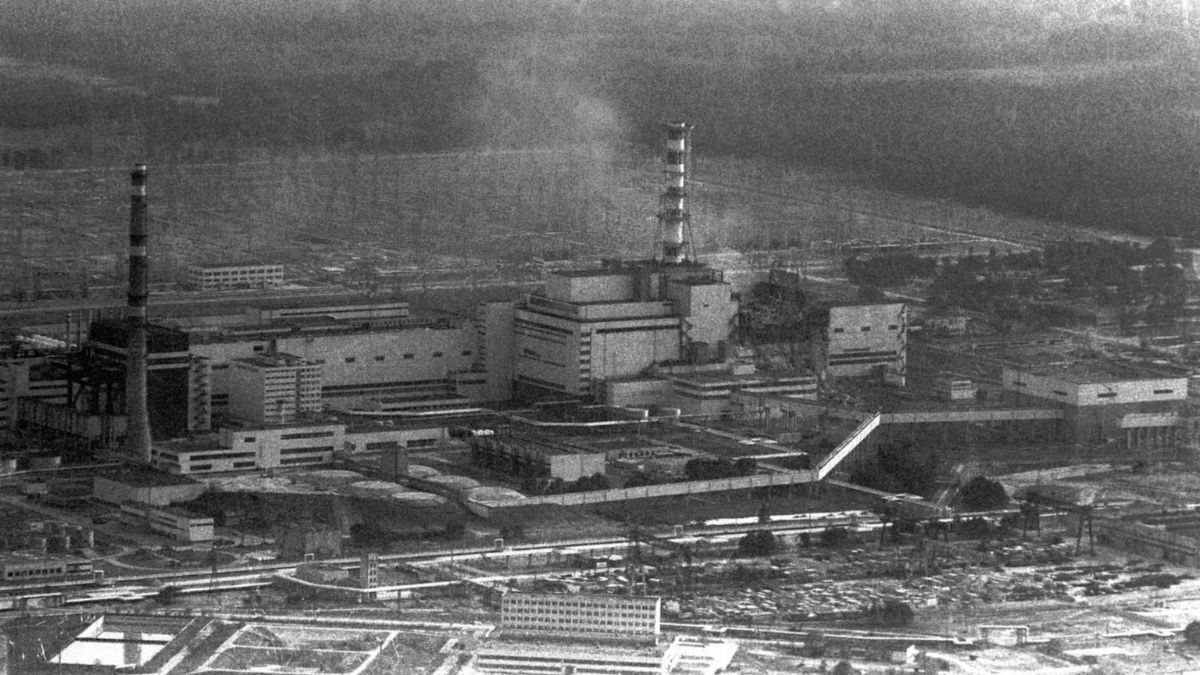One of the worst nuclear disasters in history took place on April 26, 1986 in Chernobyl, USSR where the number four reactor of the Chernobyl Nuclear Power Plant exploded during a late-night test.
If you are a history geek who loves to learn about important events from the past, Firstpost Explainers’ ongoing series, History Today will be your one-stop destination to explore key events.
On this day in 1865, popular actor John Wilkes Booth, who fatally shot US President Abraham Lincoln, was tracked down and killed by the US troops 12 days later from a Virginia barn. On this day in 1994, Germany made Holocaust denial a criminal offence under its legal system.
Here is all that took place on this day across the world.
Chernobyl nuclear disaster shook the world
April 26, 1986, is considered to be a black day in history as the world experienced the most severe nuclear accident. Reactor number four at the Chernobyl Nuclear Power Plant in Pripyat, then part of Soviet Ukraine, suffered a catastrophic explosion during a late-night safety test.
The test triggered a massive explosion and subsequent fire due to critical design deficiencies and operational errors. This in turn led to the significant release of radioactive substances into the atmosphere.
The radiation levels reached a deadly extent after the explosion tore through the reactor, blowing off the roof and exposing the nuclear core. According to reports, two plant workers died on the night of the explosion while 28 emergency workers succumbed to acute radiation sickness within weeks. Over time, thousands more were affected by radiation-induced illnesses, particularly thyroid cancer among children and adolescents.
Initially, the Soviet government delayed revealing the disaster, even as radioactive clouds drifted over Europe. It wasn’t until Swedish monitoring stations detected unusually high radiation levels that the Soviet Union admitted an accident had occurred.
The nearby town of Pripyat, home to nearly 50,000 residents, was evacuated the following day. Eventually, a 30-kilometer exclusion zone was established around the reactor. In the years that followed, a sarcophagus was built to contain the radiation, later replaced by a more durable steel shelter in 2016.
The Chernobyl disaster not only exposed the dangers of nuclear energy mismanagement but also highlighted the need for international cooperation and transparency in nuclear safety.
Lincoln assassin John Wilkes Booth died
US President Abraham Lincoln is considered to be one of the pioneers in the history of America. But, he was not popular among the Confederacy. John Wilkes Booth, then-famous actor and strong supporter of the Confederacy, hatched a conspiracy to kidnap the president but failed.
Following the surrender of General Robert E Lee’s Confederate army in Virginia on April 9, Booth altered his scheme to assassinate President Lincoln, Vice President Andrew Johnson and Secretary of State William Seward. So on April 14, 1865, he attacked the three leaders at Ford’s Theatre in Washington, DC, but could only manage to kill Lincoln that night.
The 26-year-old actor then jumped on the stage below and broke his leg before escaping to his waiting horse behind the theatre. Booth and his accomplice, David Herold, made their way across the Anacostia River and headed toward southern Maryland. He received help from several Confederate sympathisers while Making his way to Virginia.
In Virginia, his luck finally ran out and he was caught while staying at the farm of Richard Garrett. Although Garrett let the two stay he asked his son to lock the gate of the barn. Following a tip, Union troops visited Garretts’ barn. While Harold came out easily, Booth refused vehemently leading the soldiers to set the building on fire. Moments later, he was shot by Sargent Boston Corbett, despite orders to capture him alive. Paralyzed and bleeding heavily, Booth was dragged from the barn and died a few hours later. His final words were reportedly, “Useless, useless.”
Germany made Holocaust denial illegal
Germany took a historic step in confronting its past by making Holocaust denial a criminal offence under its legal system on this day in 1994. The move was part of broader legislation aimed at curbing the spread of hate speech, neo-Nazism and right-wing extremism, which had seen a troubling resurgence in post-reunification Germany.
The new law amended Section 130 of the German Criminal Code, specifically targeting incitement to hatred and public denial or trivialization of crimes committed under National Socialism. Under the statute, anyone who publicly denies, downplays, or approves of the Holocaust could face up to five years in prison or a fine.
Germany’s decision came in the wake of increasing concerns about anti-Semitic rhetoric and the activities of far-right groups. German lawmakers sought to prevent the distortion of historical facts and the revival of Nazi ideology by outlawing Holocaust denial. The legislation also reinforced Germany’s commitment to “Vergangenheitsbewältigung” or the ongoing effort to come to terms with the atrocities of the Nazi era.
This Day, That Year
In 1964, the United Republic of Tanzania was founded.
The English Royal Academy of Arts hosted its first art opening on this day in 1768.


)

)
)
)
)
)
)
)
)



